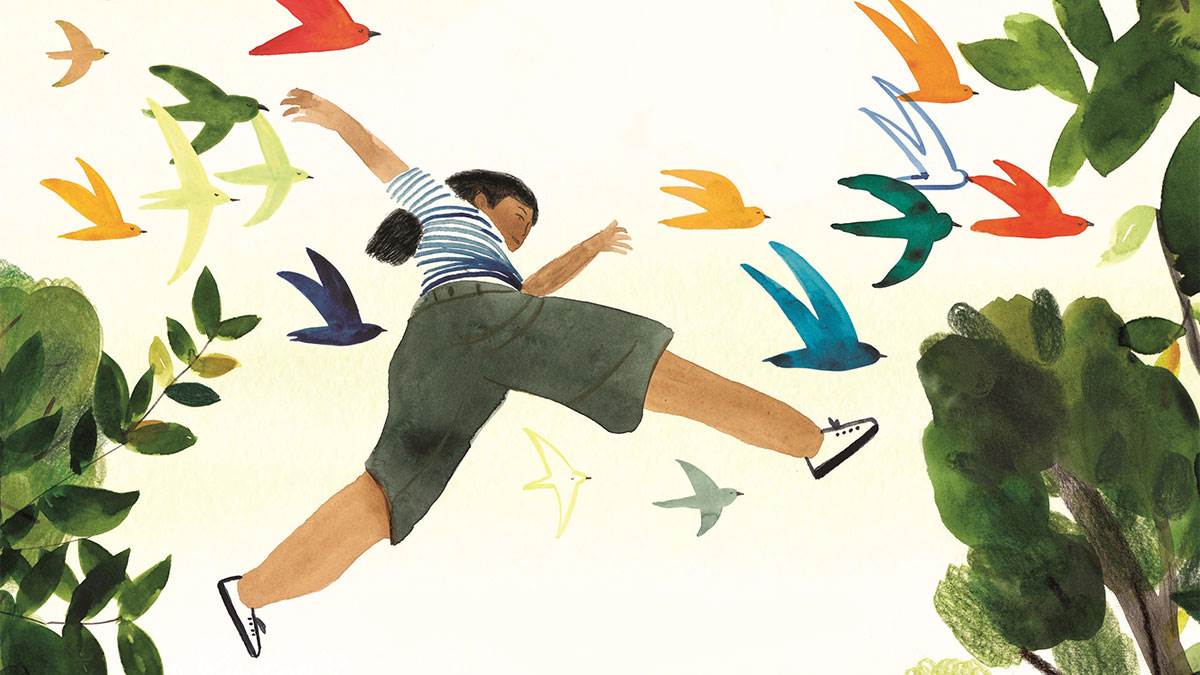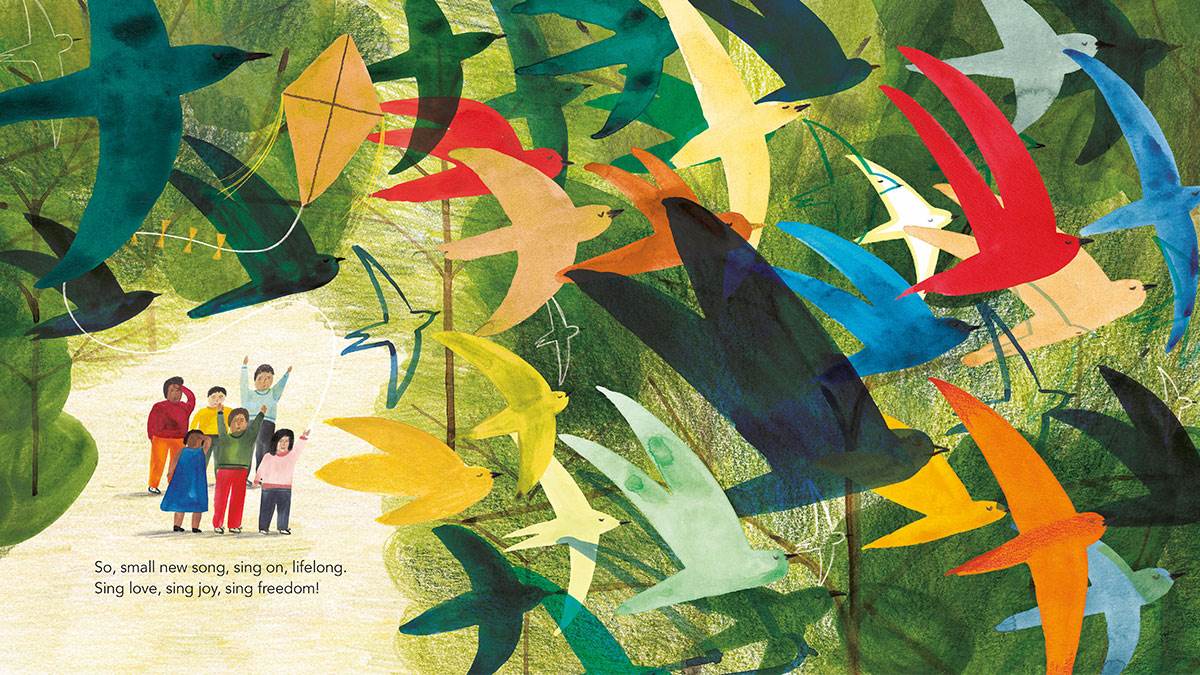Why the rights of children have never been so important
Published on: 02 August 2019 Author: Nicola Davies
It's 30 years since children's rights were put at the top of the world's agenda by the United Nations. Children's author Nicola Davies explains why her next beautiful book is inspired by this very subject.
 Illustrated by Marc Martin
Illustrated by Marc Martin
November 2019 is a very important anniversary for children all over the world, because it is the 30th birthday of the United Nations Convention on the Rights of The Child. It’s a bit of a mouthful but it’s known as the UNCRC for short and it’s important because it is an international agreement to protect the rights of all children. Every country who has signed the UNCRC is bound by international law to give children the rights set out in it.
There are 54 of these rights, or articles as they known, and they include the basic things that all children need – food, shelter, healthcare and protection from violence and neglect. But they also include rights for the hearts and souls of children: the right to an education, the right to be raised by their family in their own culture, the right to be friends with who they like and, most importantly, the right to be heard.
Under the UNCRC, children whose rights are not protected by the country where they live have the right to appeal directly to the United Nations.
Courage for children to speak out
The idea of children’s rights is much older than just 30 years. Following the horror of the First World War, a group of people, led by the English social activist Eglantyne Jebb (the founder of Save the Children), wrote a document called the Declaration of the Rights of The Child. It was approved by the League of Nations – the first version of the United Nations in 1923.
Almost every country in the world has signed the UNCRC and agreed to protect children’s rights. Only South Sudan and the USA have not. But in spite of so many countries agreeing and in spite of so many years of talk, the sad fact is that millions of children around the world still live without enough food and without an education. Many children are separated from their families by war, by slavery or by the action of governments, as we have seen recently in the US with migrants from Central America.
I really want children to be aware of the rights that they have, set out in international law, and the fact that they have the right to speak up and to be heard. It’s never ever been more important that children’s voices are heard: war and conflict take children’s rights away every day and climate change threatens the rights of all children to a future.
I know that sometimes children can feel afraid to speak, afraid to talk about things that they don’t like and how they would like the world to change. But the the UNCRC is there to help, to give them courage and to remind adults of their responsibility to listen to what children have to say.
 Spread from Every Child a Song by Nicola Davies and Marc Martin
Spread from Every Child a Song by Nicola Davies and Marc Martin
Giving the voiceless a voice
So when the publisher Wren and Rook asked me to write a book about the UNCRC (Every Child a Song), I was really pleased. But I didn’t want to write something that was just a list of facts – I never do! I wanted to write something that was inspirational, that carried the very best of the spirit of what the UNCRC is trying to do.
I thought about how I felt when my children were born, how special they were and how I felt so strongly that there was so much potential held in their tiny bodies. It felt then, as if I’d heard the first tentative notes of a melody, a melody that was their life, a melody that would gather strength and complexity as they grew and learned and went out into the world.
That gave me the idea of the song that runs through the book, representing the life of the child. A song can be silenced too, a song can be drowned out, its melody can be changed into something discordant and ugly – and that’s what happens when children rights are not respected and upheld.
But a song can be sung by others. When a voice is silenced, we can sing its song, we can tell its story, and that’s what the UNCRC is about. It's about giving the voiceless a voice, singing their song when they are unable to to so, giving them back their right to speak out, sing out, live free...
How we should treat each other
You can read an easy-to-understand version of the UNCRC, listing the rights of a child, online (PDF).
I printed it out and had them on my study wall all the time I was working on Every Child a Song. These rights are a guide fo all of us, not just children, but all human beings: a reminder of how we we should treat each other and a standard that we should all struggle to meet.
Find out more about Nicola Davies, our former Writer in Residence
Topics: Politics/human rights, Features






Add a comment